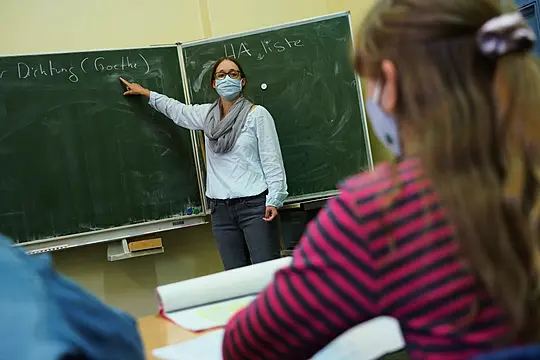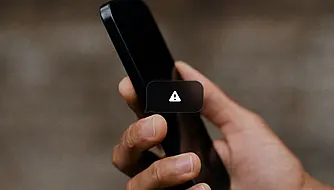The Health Information and Quality Authority (HIQA) has published advice to the National Public Health Emergency Team (NPHET) on whether or not the minimum age of mask wearing should be reduced.
Based on the available evidence, including consideration of the latest international practice, HIQA have advised that the current minimum age for mask wearing should not be reduced.
HIQA’s chief scientist, Dr Conor Teljeur, said: “The use of layered mitigation measures in schools and childcare facilities, such as physical distancing, hand hygiene, cough etiquette, increased ventilation, and, most importantly, not attending when you have symptoms of COVID-19, reduces the risk of transmission of SARS-CoV-2.
"National and international evidence suggests that when these mitigation measures are fully implemented, schools become low risk environments.”
Dr Teljeur said there are currently high rates of infection in the community, and he encourages parents and children to continue to observe public health guidance before, during and after school activities.
Asymptomatic people
Separately, HIQA has also published new advice on the use of rapid antigen testing for screening or surveillance of asymptomatic people to limit transmission of Covid-19.
HIQA reviewed the use of rapid antigen testing in real-world settings for screening or surveillance of asymptomatic individuals to limit the transmission of the virus.
Based on the current evidence, they said there is uncertainty regarding the effectiveness of rapid antigen testing for screening of asymptomatic individuals with the aim of limiting transmission of Covid-19.
There are also significant resource, implementation, regulatory, ethical and social considerations associated with the widespread use of rapid antigen detection tests (RADTs) in asymptomatic populations.
HIQA advised that RADTs may have a role in limiting transmission in certain circumstances, but only as an additional public health measure, rather than a replacement for known mitigation measures.
Dr Teljeur continued: “A negative antigen test in an asymptomatic person should not be viewed as a ‘green light’ to engage in activities that would be otherwise considered as high risk for transmission.
“Also, the introduction of routine and widespread rapid antigen testing in asymptomatic populations would require a significant investment.”







